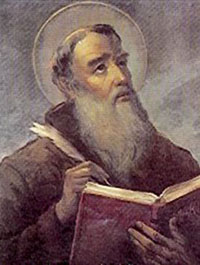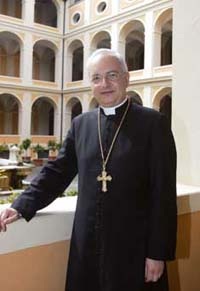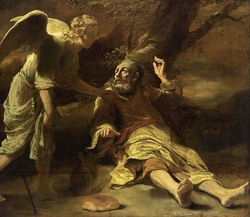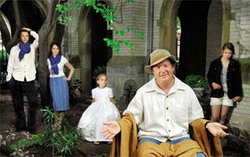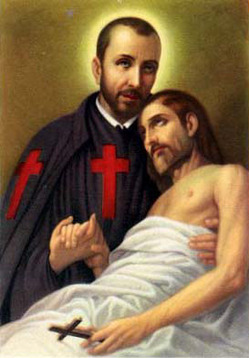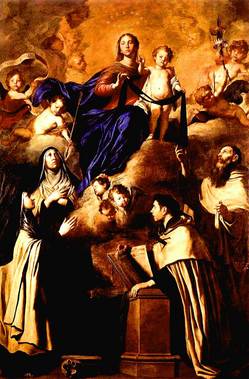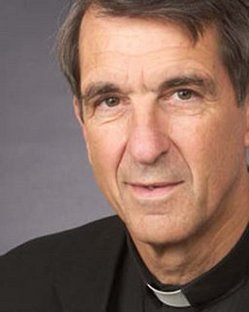 As it’s reported in a few places, Jesuit Father Joseph Fessio, the well-known and gifted teacher and leader was fired by Ave Maria University. The matter of his dismissal revolves around all things, financial matters of the university. Something mentioned here before. So, one must ask if the university is going to be able to make it in the long haul or is the pizza man’s dream over. All are called upon to pray for the Holy Spirit’s guidance for Father Fessio and, of course, for Ave Maria who once again makes an imprudent decision just because someone disagrees with their philosophy. Sounds like the roundheads are at it again. Read the news article on this event. Father Fessio’s email follows:
As it’s reported in a few places, Jesuit Father Joseph Fessio, the well-known and gifted teacher and leader was fired by Ave Maria University. The matter of his dismissal revolves around all things, financial matters of the university. Something mentioned here before. So, one must ask if the university is going to be able to make it in the long haul or is the pizza man’s dream over. All are called upon to pray for the Holy Spirit’s guidance for Father Fessio and, of course, for Ave Maria who once again makes an imprudent decision just because someone disagrees with their philosophy. Sounds like the roundheads are at it again. Read the news article on this event. Father Fessio’s email follows:
Academic Vice President of Ave Maria University, flew from Houston, where
he was attending a meeting of the Southern Association of Colleges and Schools,
to San Francisco, to inform me personally that I was being dismissed from Ave
Maria University. Our meeting was amicable and Dr. Sites, as always, acted as a
Christian gentleman.
conversation I had in November of 2008 with Jack Donahue, then chairman of the
board of AMU. At that time I felt it an obligation to speak to the board
chairman before the upcoming board meeting, to make sure he was aware of the
urgency of the university’s financial situation. After I had informed him,
using projections based on publicly available documents and statements, he
asked me what I thought was the solution. I told him that there were policies being
followed that were at the root of the problem, that the present administration
was irrevocably wedded to those policies, and that without a change of
administration the university was at great risk.
Donahue related this conversation to Tom Monaghan, and it was decided (I don’t
know specifically by whom) that the university could not have a faculty member
making these criticisms of the administration and thus undermining the
university.
similar substantive concerns that I was undermining the university.
to support the university. I pray for its success. I have great admiration for
the faculty, students, and many of the staff. I do disagree with some of the
policies of the administration. This seems to be the reason I was fired the
first time, in March 2007, since the official explanation was
“irreconcilable administrative differences”.
is an accurate summary to say that I am being dismissed as a faculty member
because of a private conversation with the chairman of the board in which I
made known my criticisms of the university administration; and because of
allegations which have not been made known to me and to which I have not been given
an opportunity to respond.
parents. And I will continue to think my dismissal is another mistake in a long
series of unwise decisions.
